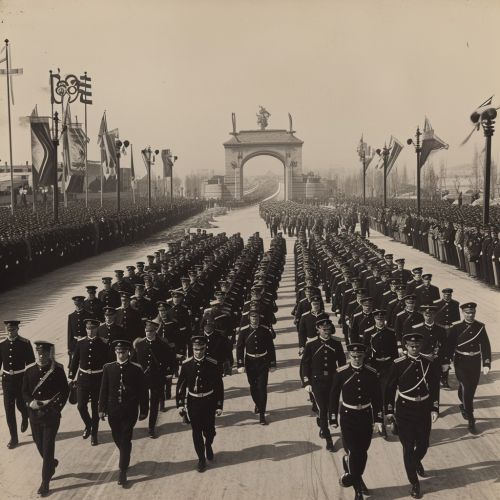1924 Winter Olympics
Overview
The 1924 Winter Olympics, officially known as the I Olympic Winter Games, were a winter multi-sport event held from January 25 to February 5, 1924, in Chamonix, France. The Games were organized by the French Olympic Committee, and were originally referred to as the "International Winter Sports Week." It was not until the following year that the International Olympic Committee (IOC) retroactively designated them as the first Winter Olympics.
Origins
The idea of including winter sports in the Olympic program was first proposed by Count Pierre de Coubertin, the founder of the modern Olympic Games, in 1894. However, it was not until 1921 that the IOC, led by its then-president, Count Henri de Baillet-Latour, decided to host a "Week of International Winter Sports" in 1924 in Chamonix, coinciding with the 1924 Summer Olympics in Paris.
Events
A total of 16 events in 9 sports were contested at the 1924 Winter Olympics. These included bobsleigh, curling, ice hockey, military patrol, Nordic skiing, which encompassed cross-country skiing, Nordic combined, and ski jumping, as well as figure skating, speed skating, and ice hockey. The military patrol event, a precursor to the modern biathlon, was a demonstration sport and did not count towards the official medal tally.
Participating Nations
A total of 16 nations sent athletes to compete in the 1924 Winter Olympics. This marked the Olympic debut for many nations, including Finland, Norway, and Switzerland, which have since become powerhouses in winter sports. The United States and Canada were the only non-European nations to participate.
Medal Count
Norway topped the medal count at the 1924 Winter Olympics, winning a total of 17 medals, including 4 gold. Finland and Austria followed, with 11 and 9 medals respectively. The host nation, France, finished with 3 medals, including 1 gold.


Legacy
The 1924 Winter Olympics marked the beginning of a tradition that continues to this day. The success of the event led to the establishment of the Winter Olympics as a separate event from the Summer Olympics, held every four years in different host cities around the world. The Games also played a significant role in promoting winter sports and fostering international cooperation and understanding.
